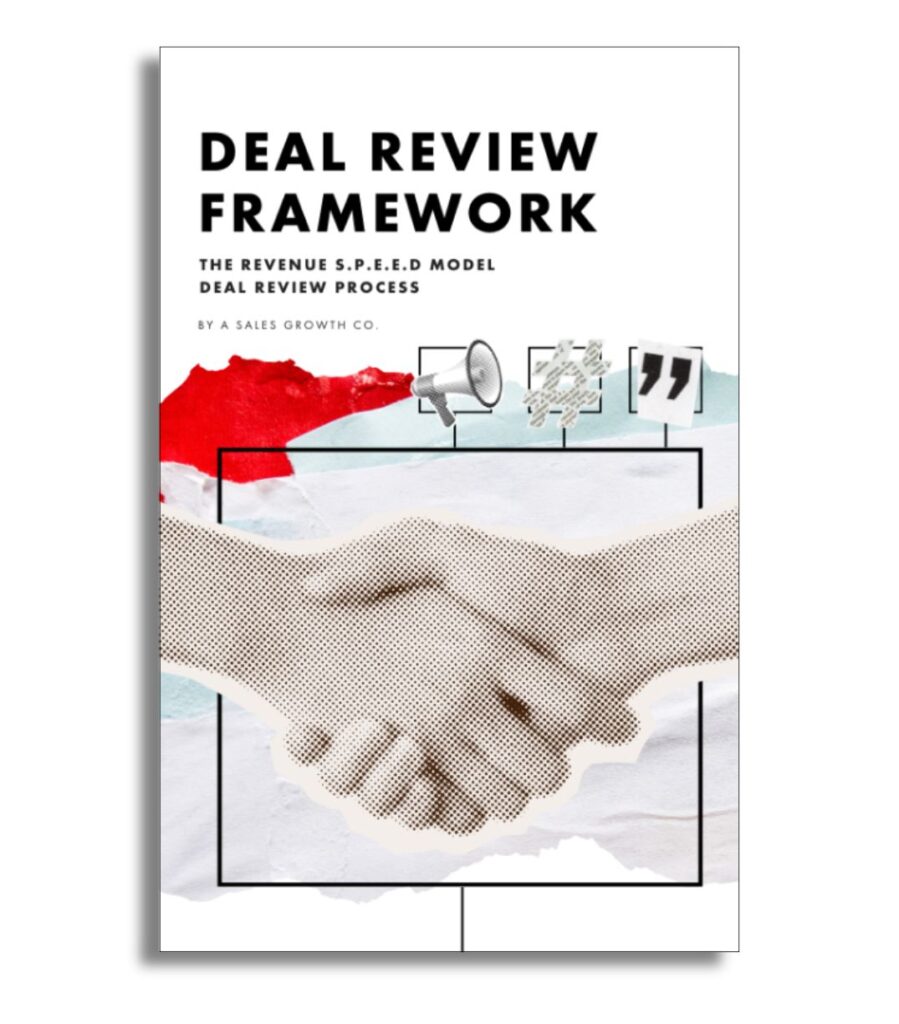I feel pretty confident in saying one of the most frustrating parts of a seller’s life is dealing with a cold prospect.
You’ve just had a dope call, the prospect is nodding along, seemingly salivating over your solution. They’re saying things like “oh yeah, makes total sense” or “I’m super excited to get this rolling.” Call is almost over, you agree on their next steps and they ensure you they just need to run it by the team or crunch some numbers.
We feel good as we’re updating the CRM – our deal score jumps a couple points, good shit, the deal is moving.
Fast forward a few weeks and….crickets. You call, nothing. You email, nothing. Something is wrong, you panic, and before you know it you’re leaving a new voicemail every day “just following up.”
Desperation Trap
From a buyer’s seat, the “just checking in” email is annoying. You’ve lost control of the sale, and you’re falling into desperation. When you become desperate you kill the deal. You become a beggar – maybe if I send one more email or just get them on the phone one more time. No. Stop. Desperation reeks and every “one more email” puts a worse taste in the buyer’s mouth.
Second, all that time crafting the “perfect” re-engagement email is wasting time. Time that could be spent on prospects that will actually buy.
1 Email to Re-Engage a Cold Prospect
There’s a single email you need to send to test the waters. If you get a response, we’re back on track. If you don’t, time to move on and they all start the same.
“I’m confused, you said…”
That’s it. That’s all you need to say to get a prospect to take notice. This works for 4 reasons:
- It calls out the elephant in the room. They’ve gone MIA and you’re addressing it head on
- Put the ball back in their court. Don’t beg for their attention, ask them to explain themselves.
- It reminds them of their words. People hate being inconsistent or flaky, this forces them to address it.
- It opens the door for open communication. Maybe something has changed on their end. This allows them to come clean without feeling attacked.
This is how I use it:
“I’m confused, you said you were losing $65,000 in unnecessary expenses (be specific) and agreed our solution could resolve this. We agreed to chat again this week after you spoke with your team and CEO. Has something changed?”
You’ve reminded them of their problem, their agreement on the impact, their enthusiasm to fix the problem, and the next step they committed to. You’ve laid down your cards without being a beggar. You’re being direct and professional.
More often than not, prospects are just busy humans. We need to cut through that noise and stay top of mind. Stop with the “checking in” bullshit. Don’t be a doormat. Hold your prospects accountable, challenge them, and if they don’t hold up their end, move on.
How to Re-engage a Cold Prospect
Recall Original Commitment
Go back to your notes quick. What was the business problem? What was the impact? What was the root cause? What did they commit to as their next yes?
Highlight the Miss
They committed to something, or they should have, what was it? Repeat the commitment back to them.
Ask if Something has Changed
Shit happens. We’re not accusing them of anything, we’re just curious if something in their world has changed, giving them an out, and a chance to explain where they went.
Example
“Hey Mark, I’m confused. You said our solution could save your company $50K a year in wasted man-hours, and you were excited to present it to your team last week. We agreed to touch base this Monday to discuss next steps. Has something changed in your evaluation process?”
We’re not being pushy or annoying, just holding them accountable. We don’t want them to feel bad, we want them to re-engage.
Conclusion
You should have everything you need to go re-engage a prospect who has gone dark on you. Just remember:
- Don’t be a doormat: Just checking in emails are annoying and are the fastest way to sell yourself out of a deal.
- I’m Confused: This is your new mantra, put it on a sticky note on your monitor.
- Hold them Accountable: remind them of the agreed upon problem, impacts, and what they committed too. Make them squirm (professionally).
- Give them an out: Ask if something has changed. You’re not a therapist, but, don’t be an asshole either.
- Do your homework: If you can’t remember the original commitment, problems, or next steps then this strategy is useless. If you missed it in the discovery, well….
Be direct, professional, and a problem solver. If they don’t respond, move on.




0 Comments